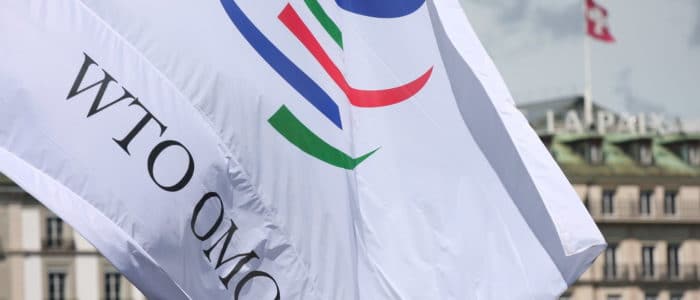Published
Time Is Running Out to Address Trade Frictions. For Effective WTO Reform to Happen, the US, EU and China Need to Live Up to Their Responsibilities
By: Philipp Lamprecht Roderick Abbott
Subjects: European Union North-America South Asia & Oceania WTO and Globalisation

All three of the WTO’s functions – administering multilateral trade rules, serving as a forum for trade negotiations, and providing a mechanism to settle trade disputes – are currently under pressure and in need of reform. However, in order to take the ongoing discussions on WTO reform forward, it is key to keep in mind that the process of WTO reform is inextricably linked with underlying trade frictions, notably between the US, EU and China.
These trade frictions are well illustrated by threats of the US to withdraw from the WTO altogether, raising tariffs in the name of US national security, and blocking the appointments of members to the WTO’s Appellate Body. In this light, ongoing discussions for example about improving working and institutional learning practices or introducing thematic sessions as well open plurilaterals in the WTO remain important. But they do not address the actual core problem: for the process of WTO reform to go forward and be effective, trade frictions need to be addressed in a serious manner.
And time is running out. Indeed, come December the Appellate Body will not have enough members to hear cases, when the terms of two members end, thereby causing the WTO’s dispute settlement system to become effectively useless.
While time is short, it does hold a window of opportunity. The US, EU and China should work together to form a tripartite effort that could address key issues of trade friction such as forced technology transfer, intellectual property rights, state financed subsidies and rising tariffs, just to name a few.
In this process, China should not be seen as an outsider in the WTO. Its strategy towards the EU should be to reach out and to help build a tripartite group between the US, EU and China. The current change towards a new Commission in the EU could also serve as an opportune moment to do so. Similarly, the new Commission should make it a priority to quickly engage in discussions with the US and China to address these issues.
The issue of timing is important. You cannot rush WTO reform. It takes time to discuss ideas of reform and come to an agreement in an organisation with more than 160 members. The process has been ongoing for long and is likely to take years to come. But addressing underlying trade frictions among key members is a necessary condition for this process to be more effective. And in the months to come saving the Appellate Body is the first priority.